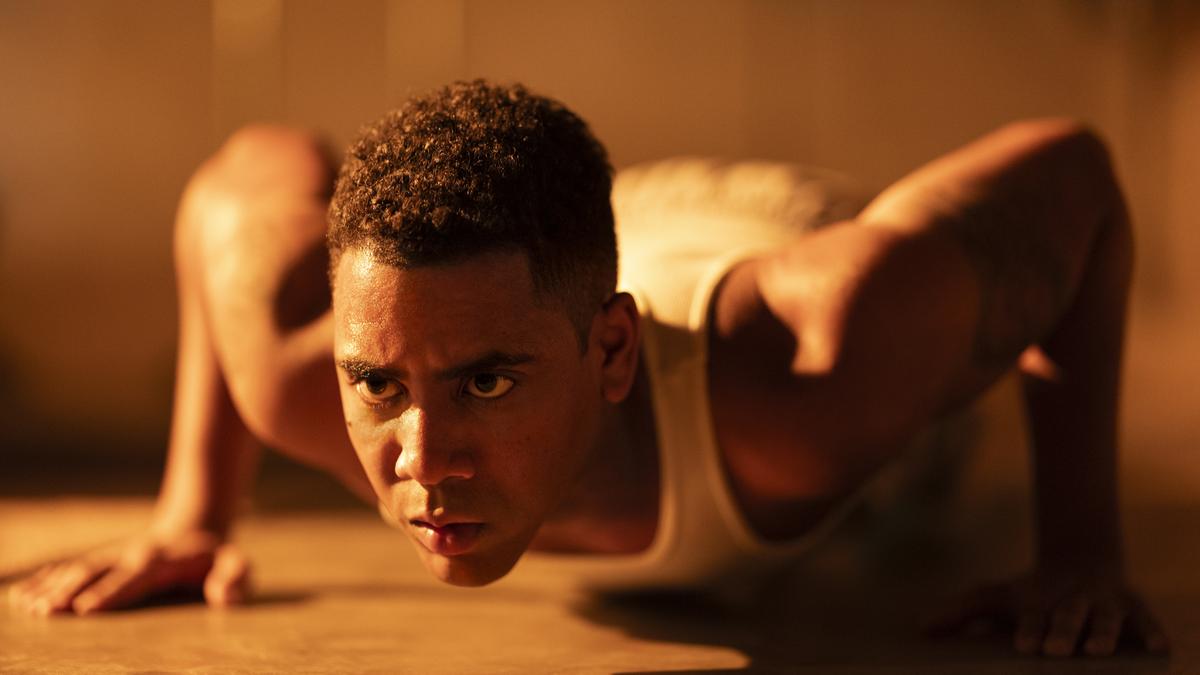
‘Unstoppable’ movie review: Anthony Robles’ biopic finds rhythm after a false start
The Hindu
‘Unstoppable’, William Goldenberg’s portrait of the inspiring American wrestling champion, struggles to claw its way back from a heavy-handed opening, becoming a routine sports drama that works in parts
A mainstream genre film that attempts to stay relevant while reinventing conventional storytelling techniques and tropes has the potential to become a popular, memorable sculpture of its period. This doesn’t come from a complete disregard for these techniques but from understanding why they exist in the first place. Now, what does it really take for a mainstream filmmaker to acquire the deftness to play with the frameworks within its rules, and to know how to break them? I found myself asking this while watching William Goldenberg’s new sports drama.
This is a linear, against-all-odds biopic that proves, to both its merit and otherwise, why a continuous understanding of popular genre tropes is necessary for films to become edifices of their period. On the one hand, the film refuses to reinvent its tropes, and on the other, demonstrates what made great sports dramas like Rocky stand the test of time.
Let’s talk about how screenwriters Eric Champnella, Alex Harris and John Hindman take us into the world of Anthony Robles (Jharrel Jerome), a wrestling prodigy from Mesa, Philadelphia, born with one leg. Taking brevity into account, they waste no space but make a point about how this wrestler views Tom Brand, the head wrestling coach of Robles’ dream institution Iowa, and the school’s wrestling pride, Matt McDonough. This is ideal for what follows, but playing the devil’s advocate, the manner in which the opening is executed shows just about everything wrong with the film.
For 30-odd minutes, Unstoppable carries the spirit of some old-world YouTube motivational video with some heavy-handed, flowery quote in the background. A straightforward shot, panning from toes to torso, is how we are introduced to Robles. Working push-ups on the floor, he watches a television interview featuring Brand and McDonough, showboating the secrets to success. The camera then pans to his medals, an assembly of his single-paired shoes, and a poster of Rocky to top it.
Of course, this is the story of a spirited, disciplined sporting youth, born with one leg, living with his struggling mother, a wife-beating terror of a step-father, and their four younger children. It is expected to carry a certain uplifting, aspirational quality. But the tone Unstoppable takes is corny and sheepishly theatric. It’s more WWE (Robles once goes, “it’s [WWE] not even real”) than the real deal. Details are spoon-fed, and the condition only gets worse from here on.
How do we know of the equation he shares with his stepfather, Rich Robles (Bobby Cannavale)? Macho face-offs around the dinner table, often triggered by the dead-beat calling Anthony out on a pissing contest to declare “the real man.” How do we know how Anthony feels about his high school coach Bobby Williams (Michael Peña)? He tells us in a rudimentary, “I wouldn’t be here without him.” So is the case with Judy Robles’ (Jennifer Lopez) struggles with her toxic marriage, shown with a pedestrian dual scene on her tendency to forgive the unforgivable.
Sure, the scope to play around facts is nill when it comes to adaptations (the film is adapted from Robles’ autobiography of the same name), but the concern here is the straightforward screenplay — a stale treatment, and uninspiring staging of scenes. In two of the scenes, Robles climbs the iconic staircase of the Museum of Art, and perhaps, it was important for Philadephia homeboy Robles to pay homage to Sylvester Stallone’s Rocky, but save for the poster in his room, it is entirely irrelevant to the larger story.


















